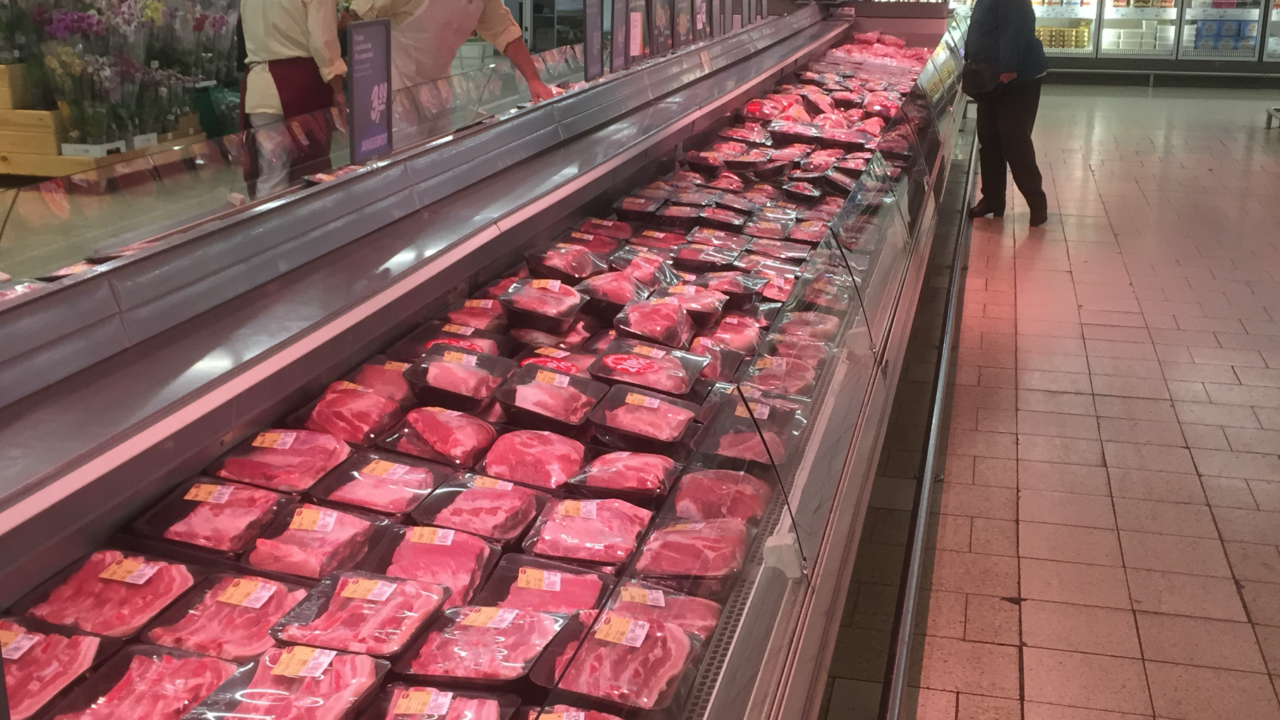So, what is actually going on with the beef trade?
Brexit is now out of the way after many years of uncertainty. The result was as good as anyone could have hoped for. A no-tariff, free trade deal with our most important market.
Farmers were beginning to have hope that Teagasc’s breakeven figure of €4.40/kg was now beginning to come into sight. Then, without any warning, the price collapsed by a whopping 20c.
Some of the factories at the lower end of the scale are already talking about the factory protest price of €3.65/kg – the line in the sand that brought the farmers to the factory gates.
What happened to beef prices?
So what has gone on? The factories have said nothing. The Minister for Agriculture is talking about a new ‘REPS’ scheme. Bord Bia is talking about the positive vibes for grass-fed beef.
Before a problem can be fixed, the first and most important step is to identify the problem. For once, let’s not blind ourselves with anger; let’s accept factory bosses are not our friends. Let’s also accept, and I know it may be difficult for some, that they are not our enemies.
To them [factories] buying and selling beef is purely a business. It is their objective to get as much as they can for beef while at the same time buying as cheaply as possible, passing back as many costs as possible to the farmer; paying workers as little possible; and looking for and making use of as many grants as possible.
Identify the problems
For a start, the food service industry in Ireland, the UK, Europe and in fact globally, is effectively shut down.
The greater portion of all carcasses is manufacturing beef, as regards out-of-spec cattle, heavy bulls and cows; an even greater proportion is manufacturing beef.
This has had a double negative effect: not only are we left without a valuable market for this manufacturing beef but many factories who had beef ready for China have had to store this beef in freezers which adds an extra cost to their business.
Having said that, factories will tell you that freezers the length and breath of the country are currently full of manufacturing beef with no home. Ok that’s one problem identified; let’s move onto the next one.
Discount pricing
Every time we switch on the telelvision, listen to the radio or open a newspaper we get bombarded with the news of new supermarkets opening up.
’10 new Aldi stores set to open this year with the creation of hundreds of jobs’, or the ‘Reilly family from Cavan saving €60 off their weekly shop by making the big switch to Lidl’, not to mention the ‘brilliant’ news that 33% has been knocked off all their beef roasts.
Please forgive me for not joining in in the nation’s enthusiasm for such events. But there is another side to all this so-called ‘good news’. It’s a side that the factories are not talking about, who are behaving a bit like the many beef farmers who did not join the 5,000 or so beef farmers at the factory gates during the protests in 2019.
All this brings us to the next important point. Effectively there is only one key customer for our beef at the moment and it’s the retailers – the UK retailers.
They are well aware that food service is shut and they also know that they are now effectively the main outlet for beef.
Even though they have done nicely out of the pandemic and retail prices have increased, this doesn’t mean that they have any intention in passing back a percentage of this extra revenue to the primary producer or even the factories for that matter.
Retailer pricing
So now finally we are getting to the source of the problem. The institution with the ultimate power: the retailers.
It doesn’t come as a source of any joy to farmers that these factories who have been paying them well below the cost of production for their beef at every opportunity that presents itself, are themselves being worked over and squeezed by the retailers who find themselves in the privileged position as the main outlet for beef.
So the factories are being squeezed by the retailers. Have they organised a protest outside Tesco? No.
They have reacted in the very same way as the bully who himself was bullied as a kid by picking on someone more vulnerable. They have gone for the winter finishers.
They have slashed the price in February by 20c. I can already hear MII [Meat Industry Ireland] talk about the extra costs and yes this is an area that the winter finisher understands.
Increased costs for farmers
Are they [MII] talking about the €40/t hike in fertiliser prices, or the €30/t lift in ration prices or the anticipated rise in veterinary doses as a result of a pending government decision to stop the merchants selling doses?
No I fear not. Extra red tape, extra certification, extra transport costs is what they are talking about.
So what can be done about it? Let’s start by putting a policy in place that is similar to what is in place in France, where smaller shops are protected.
The time for sitting back and watching our beef industry burn is over.
All the stakeholders, instead of discussing relative trivial matters, need to finally address the real problem.
From Eamon Corley, co- chair The Beef Plan Movement.
